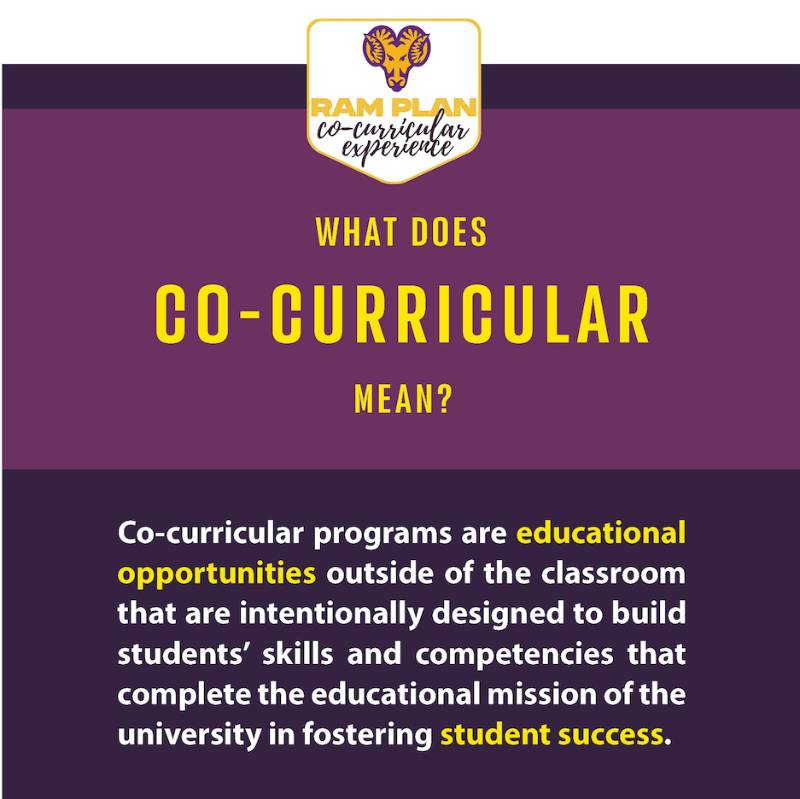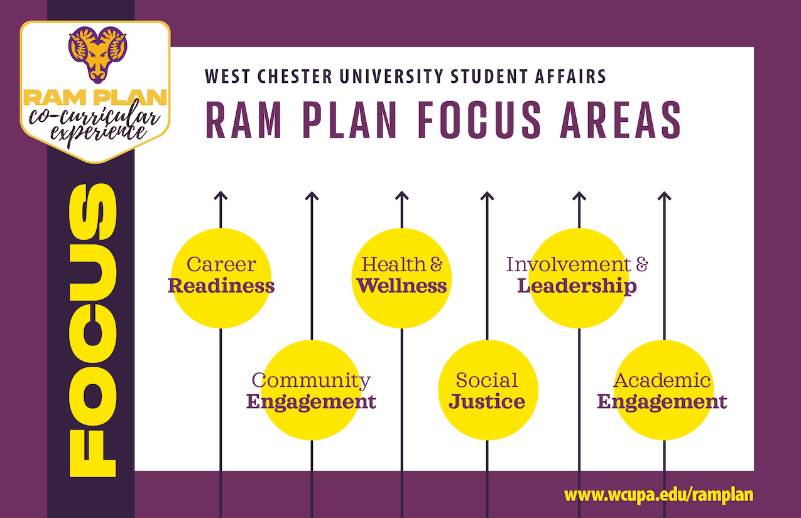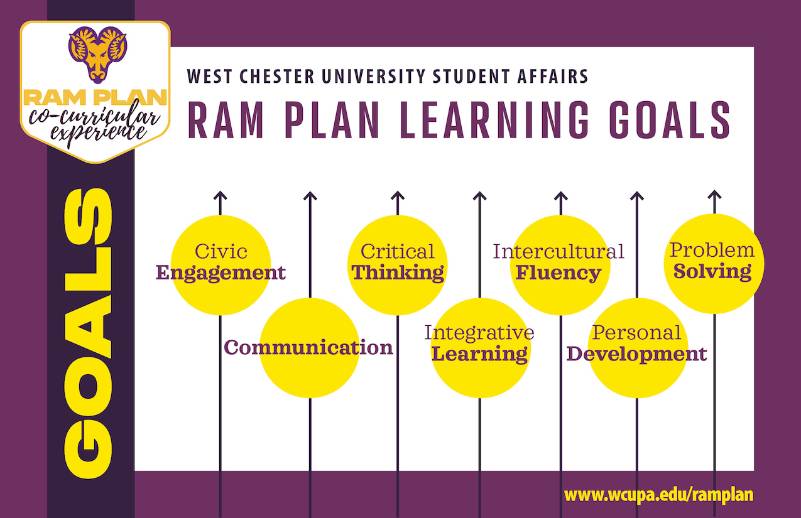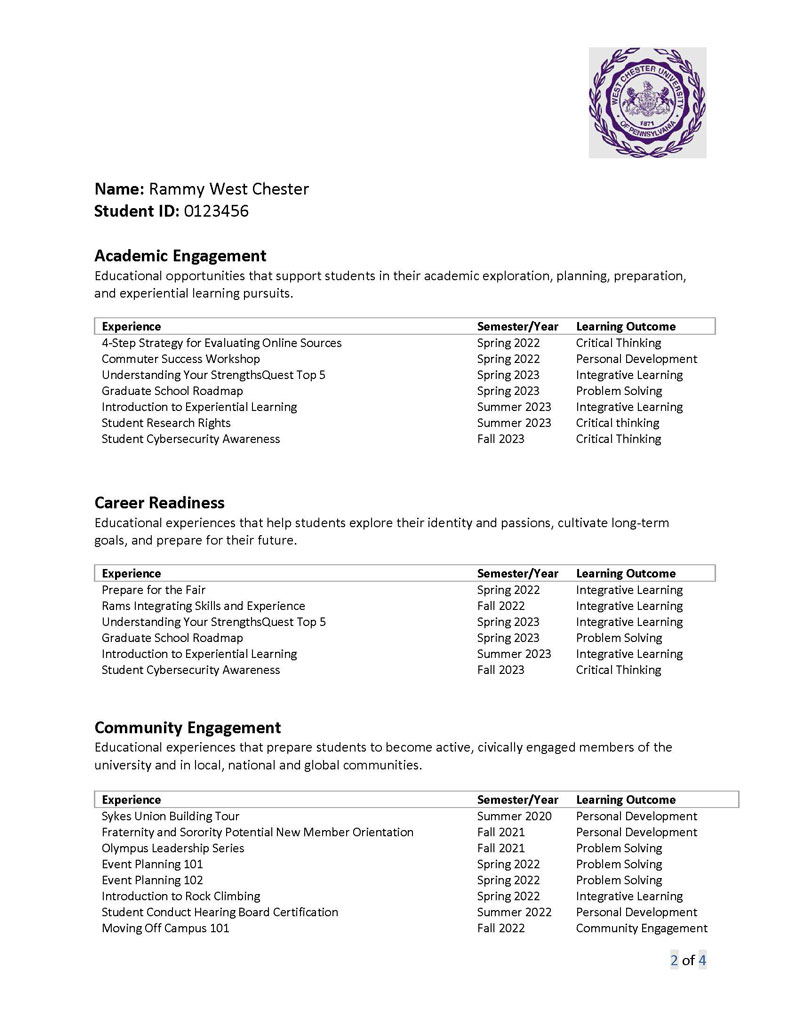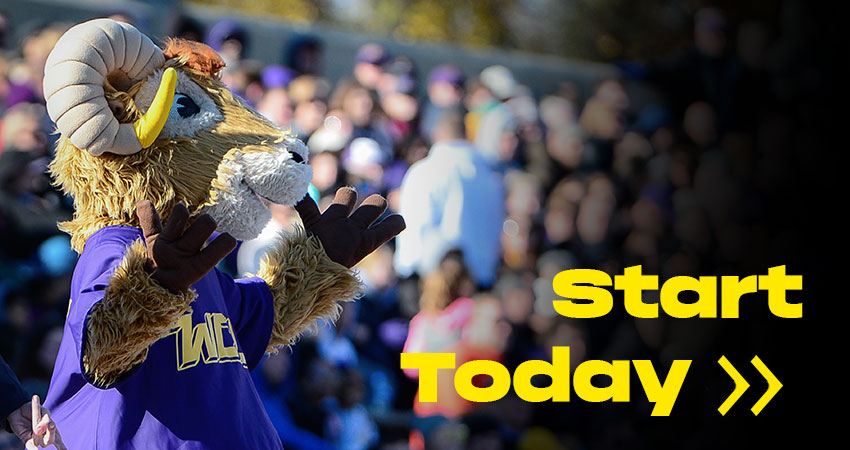Career Readiness - Educational experiences that help students explore their identity and passions,
cultivate long-term goals, and prepare for their future.
Community Engagement - Educational experiences that prepare students to become active, civically engaged
members of the university and in local, national and global communities.
Health and Wellness - Educational opportunities for students to develop and advocate for emotional, environmental,
financial, intellectual, physical, sexual, spiritual, occupational, multicultural,
and social health and wellbeing.
Involvement and Leadership - Educational experiences that integrate students into the university community and
prepare them to lead.
Social Justice - Educational experiences that engage students in addressing systems of oppression
in the areas of equity, access, participation, and human rights.
Civic Engagement- Encompasses actions wherein individuals participate in activities of personal, political,
and public concern that are both individually life enriching and socially beneficial
to the community.
Communication- The exchange of information orally, non-verbally, and in writing, with individuals,
groups, and external audiences using multiple modes, including technology and related
applications.
Critical Thinking- A habit of mind characterized by the comprehensive exploration of issues, ideas,
artifacts, and events before accepting or formulating an opinion or conclusion.
Integrative Learning- An understanding and disposition that a student builds across their personal, curricular,
and co-curricular lives, from making simple connections among ideas and experiences
to synthesizing and transferring learning to new and complex situations.
Intercultural Fluency- Valuing, respecting, and learning from people with diverse backgrounds (e.g., ability,
age, culture, economic status, education level, ethnicity, gender, nationality, race,
religion, sexual orientation). The individual demonstrates openness, inclusiveness,
sensitivity, and the ability to interact respectfully with all people and understand
individuals’ differences.
Personal Development- Includes both intra- and inter-personal elements. Intrapersonal development refers
to an individual’s self-understanding and the extent to which they engage in selecting
and living by their values and beliefs. Interpersonal development refers to an individual’s
ability to build and maintain meaningful and healthy relationships, work collaboratively,
and lead others
Problem Solving- The process of designing, evaluating, and implementing a strategy to answer a question
or achieve a desired goal.
Why do students participate in the Ram Plan?
"I wanted to be able to build something that would eventually help me with job opportunities
as well as becoming a more well-rounded individual overall."
"I wanted to have a wide breadth of experience and knowledge about the University
and everything being offered."
"I found that I’m being introduced to different things that I wouldn’t usually be."
"It helped me learn things that have helped me plan and become a better leader on
campus."
-2024 Ram Plan Experience Survey Report
